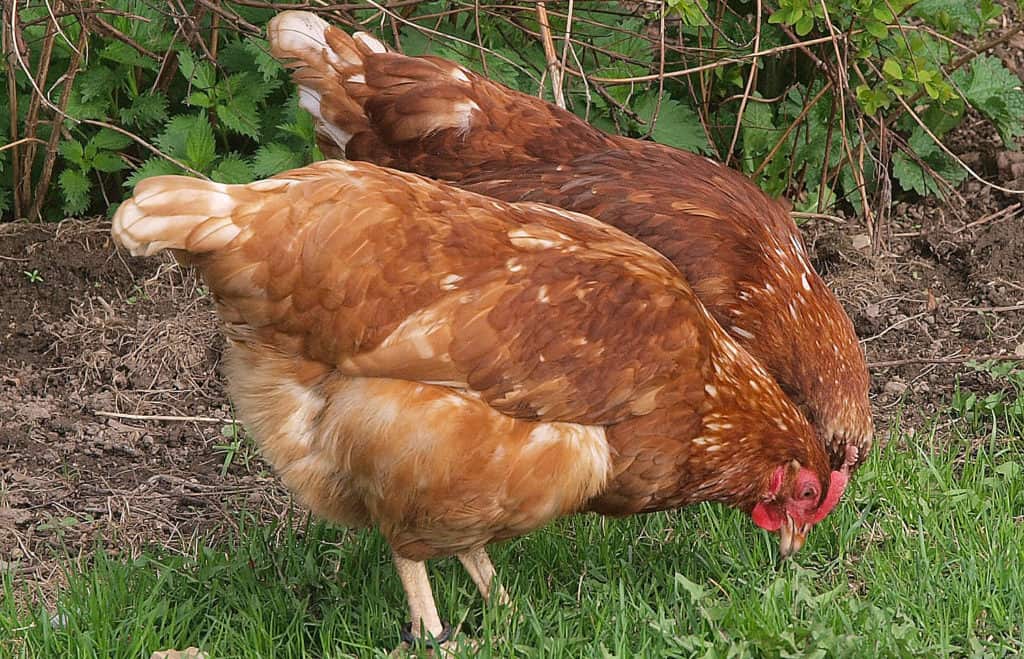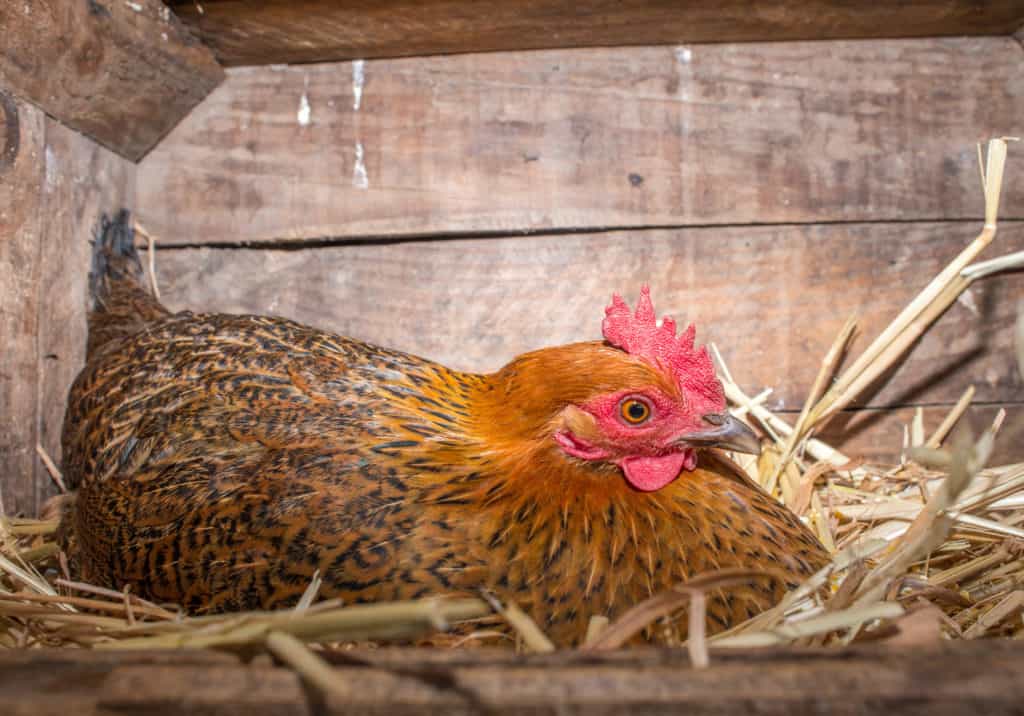Many people believe that chickens cannot lay eggs without a rooster, but is this really true? Understanding the biology of egg-laying in chickens can help clarify this common misconception. Whether you're a backyard chicken enthusiast or simply curious about poultry, this article will provide you with all the information you need to know about chickens and their egg-laying process.
Chickens are fascinating creatures with a unique reproductive system. While roosters play an essential role in fertilizing eggs, they are not necessary for hens to produce eggs. This article will delve into the science behind egg production, the role of roosters, and the differences between fertilized and unfertilized eggs. By the end of this article, you'll have a clear understanding of whether chickens need a rooster to lay eggs.
Whether you're planning to raise chickens for eggs or simply want to expand your knowledge, this guide is here to help. From the basics of egg-laying to advanced insights into chicken behavior, we'll cover everything you need to know about this topic. Let's dive in!
Read also:Julian Edelmans Weight And Height A Comprehensive Look At The Nfl Star
Understanding the Basics: Do Chickens Need a Rooster to Lay Eggs?
Let's start by addressing the central question: Do chickens need a rooster to lay eggs? The short answer is no. Hens can and do lay eggs without a rooster present. This is because egg-laying in chickens is a natural biological process that occurs regardless of fertilization. However, the presence of a rooster determines whether the eggs will be fertilized or not.
How Do Chickens Lay Eggs Without a Rooster?
Hens are biologically programmed to lay eggs as part of their reproductive cycle. Even without a rooster, a hen's ovaries produce yolk, which travels through the oviduct and eventually forms an egg. This process is driven by hormonal changes and occurs approximately every 25-26 hours in most hens.
Here are the key steps in the egg-laying process:
- Ovulation: The hen's ovary releases a yolk.
- Formation: As the yolk travels through the oviduct, layers of egg white, membrane, and shell are added.
- Laying: The fully formed egg is laid through the cloaca.
What Role Does a Rooster Play in Egg Production?
While roosters are not necessary for hens to lay eggs, they do play a critical role in producing fertilized eggs. When a rooster mates with a hen, it deposits sperm, which fertilizes the egg if the timing aligns with ovulation. The resulting fertilized egg has the potential to develop into a chick if incubated properly.
Key Differences Between Fertilized and Unfertilized Eggs
One of the most common questions among chicken enthusiasts is whether there are differences between fertilized and unfertilized eggs. While both types of eggs are nutritionally similar, there are some notable distinctions:
- Fertilized Eggs: These eggs have the potential to develop into chicks if incubated under the right conditions. They contain a small cluster of cells known as the blastoderm, which is visible as a small white spot on the yolk.
- Unfertilized Eggs: These eggs are laid by hens without the presence of a rooster. They cannot develop into chicks and are typically consumed as food.
The Science Behind Chicken Egg-Laying
To fully understand whether chickens need a rooster to lay eggs, it's important to explore the science behind the process. Egg-laying in chickens is influenced by several factors, including age, breed, diet, and environmental conditions.
Read also:How To Remove Acrylic Nails Without Acetone A Comprehensive Guide
Factors That Affect Egg-Laying
While the presence of a rooster is not a factor in egg-laying, other elements can significantly impact a hen's productivity. Here are some key factors:
- Age: Hens typically begin laying eggs at around 18-24 weeks of age. Their productivity peaks in the first two years and gradually declines over time.
- Breed: Certain breeds, such as White Leghorns, are known for their high egg production, while others may lay fewer eggs.
- Diet: A balanced diet rich in protein and calcium is essential for optimal egg-laying.
- Lighting: Hens require about 14-16 hours of daylight to maintain consistent egg production. In winter, artificial lighting can help maintain productivity.
Common Misconceptions About Chickens and Roosters
There are several myths surrounding chickens and roosters that can lead to confusion. Let's debunk some of the most common misconceptions:
Myth 1: Hens Cannot Lay Eggs Without a Rooster
This is one of the most widespread myths. As we've already discussed, hens can and do lay eggs without a rooster. The only difference is that these eggs will not be fertilized.
Myth 2: Fertilized Eggs Taste Different
Many people believe that fertilized eggs taste better or worse than unfertilized eggs. However, there is no scientific evidence to support this claim. Both types of eggs are nutritionally similar and taste the same.
Myth 3: Roosters Are Needed for Backyard Flocks
Roosters are not necessary for backyard flocks unless you plan to breed chickens. In fact, many urban areas prohibit keeping roosters due to noise concerns.
The Benefits of Keeping Roosters
While roosters are not essential for egg production, they do offer some benefits to a flock:
- Protection: Roosters are naturally protective of their hens and can help fend off predators.
- Mating: If you plan to breed chickens, a rooster is necessary for fertilizing eggs.
- Social Structure: Roosters help establish a pecking order within the flock, which can reduce stress and conflict among hens.
However, it's important to note that roosters can also be aggressive and noisy, so careful consideration should be given before adding one to your flock.
How to Maximize Egg Production Without a Rooster
If you're raising hens for eggs and don't plan to keep a rooster, there are several strategies you can use to maximize egg production:
1. Provide a Balanced Diet
Ensure your hens have access to a high-quality, nutritionally balanced diet. Layer pellets or crumbles fortified with calcium and protein are ideal for supporting egg-laying.
2. Maintain Proper Lighting
Install artificial lighting in your coop to provide hens with the 14-16 hours of daylight they need for consistent egg production.
3. Create a Stress-Free Environment
Minimize stress by providing a clean, comfortable coop with adequate space and nesting boxes for each hen.
Understanding Egg Quality and Nutrition
Many people wonder whether the presence of a rooster affects the quality or nutritional value of eggs. The truth is that both fertilized and unfertilized eggs are highly nutritious and contain essential vitamins and minerals.
Nutritional Benefits of Chicken Eggs
Chicken eggs are a rich source of protein, vitamins, and minerals. Here are some key nutrients found in eggs:
- Protein
- Vitamin D
- Vitamin B12
- Iron
- Zinc
Whether you choose fertilized or unfertilized eggs, you can be confident that they are a healthy addition to your diet.
Legal and Ethical Considerations
Raising chickens, whether with or without a rooster, involves legal and ethical considerations. Before starting a flock, it's important to research local regulations regarding chicken-keeping, especially in urban or suburban areas.
Urban Chicken Laws
Many cities allow residents to keep chickens, but restrictions may apply. For example, some areas prohibit roosters or limit the number of hens you can keep. Always check local ordinances before setting up your coop.
Ethical Treatment of Chickens
As a chicken keeper, it's your responsibility to ensure the welfare of your flock. Provide adequate food, water, shelter, and veterinary care to keep your chickens healthy and happy.
Conclusion: Do Chickens Need a Rooster to Lay Eggs?
In conclusion, chickens do not need a rooster to lay eggs. Hens are biologically capable of producing eggs without fertilization, making roosters unnecessary for egg-laying. However, if you plan to breed chickens or want to produce fertilized eggs, a rooster is essential.
By understanding the science behind egg-laying and the role of roosters, you can make informed decisions about raising chickens. Whether you're keeping a backyard flock or simply expanding your knowledge, this guide has provided you with all the information you need to know about chickens and their egg-laying process.
We invite you to share your thoughts and experiences in the comments below. If you found this article helpful, please consider sharing it with others who may benefit from the information. For more insights into chicken-keeping and related topics, explore our other articles on the site.
Table of Contents
- Understanding the Basics: Do Chickens Need a Rooster to Lay Eggs?
- What Role Does a Rooster Play in Egg Production?
- The Science Behind Chicken Egg-Laying
- Common Misconceptions About Chickens and Roosters
- The Benefits of Keeping Roosters
- How to Maximize Egg Production Without a Rooster
- Understanding Egg Quality and Nutrition
- Legal and Ethical Considerations
- Conclusion: Do Chickens Need a Rooster to Lay Eggs?


